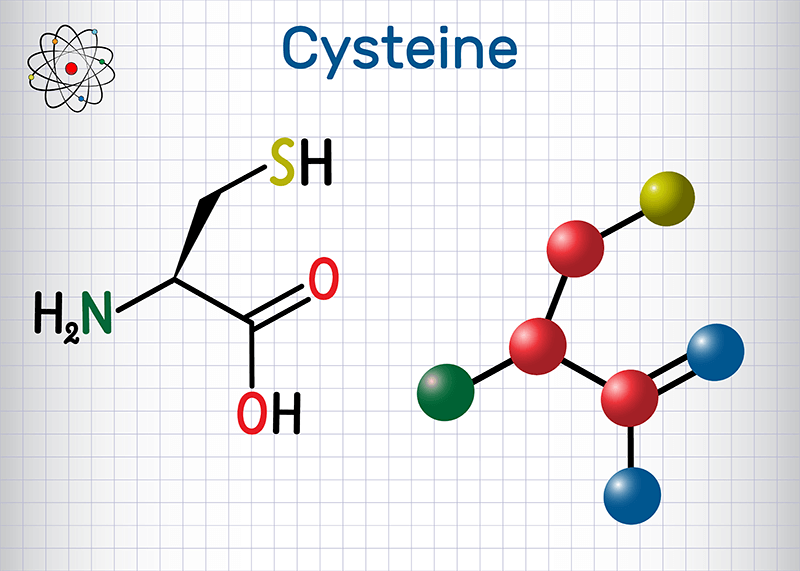- +033 2572 7171
- info@dhanvantary.com

4.5 Rating | 4500 Review

4.5 Rating | 4500 Review
Cysteine is an amino acid that can either be produced within the body or obtained through dietary sources. It serves as a fundamental component of proteins. This essential amino acid is synthesized in the body from methionine, with the assistance of vitamin B6.

When consumed as a supplement, it is typically found in the form of N-Acetyl Cysteine (NAC). Upon entering the body, NAC is converted into glutathione, a potent antioxidant. Antioxidants play a crucial role in combating oxidation caused by free radicals, which are detrimental compounds that can lead to cellular and DNA damage. The presence of free radicals is associated with various health issues, including heart disease and cancer.
Cysteine can be produced endogenously or ingested through food. It enters the body via two primary mechanisms: first, through dietary sources rich in cysteine, and second, through a metabolic pathway where the amino acid methionine is transformed into S-adenosyl methionine, subsequently converting to homocysteine, which then reacts with serine to yield cysteine.
Cysteine serves multiple physiological roles within the body. It is a significant source of sulfur, which is essential for metabolic processes. Although classified as a non-essential amino acid, it may be considered essential for infants.
Cysteine is a vital precursor to glutathione, a powerful antioxidant that protects cells from harmful substances, including free radicals. Glutathione is composed of three amino acids: cysteine, glycine, and glutamate, and it often functions as the primary antioxidant in the body.
The major functions of fatty acids include the following:
There are potential side effects associated with this medication, which may include nausea, vomiting, or constipation. When administered as an inhaled treatment, additional side effects may occur, such as a runny nose, swelling of the mouth, drowsiness, and a sensation of tightness in the chest.
Cysteine is not advised for use in infants. For children and adolescents, it should only be utilized under the supervision of a physician.
For overall health, a dosage of 220 mg of cysteine may be taken two to three times daily.
